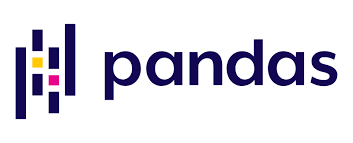When you study the data you discover more than meets the eye. Data Analytics is the bridge between technology, data science and strategy.
Ever wondered how your phone knows which ads to show you at lunchtime? Or how the supermarket emails you with specials on your favourite products? It’s not a coincidence. It’s the work of data analytics encouraging you to buy more.
DURATION
2 Years (4 Trimesters) Full-Time or Equivalent Part-TimeINTAKES
March, July, NovemberLOCATION
Sydney, MelbourneAQF LEVEL
Level 9| Duration 2 Years (4 Trimesters) Full-Time or Equivalent Part-Time | |
| Intakes March, July, November | |
| Location Sydney, Melbourne | |
| AQF level Level 9 |
COURSE DETAILS
When you study Data Analytics at MIT you’ll learn how to combine the essentials of statistics and data with technology. You’ll also develop skills such as strategic thinking, project management and problem solving.
Our industry based final year projects offer exciting opportunities to apply your learning to solve real-world problems for industry leaders.
Students have an option to specialise in:
A Major
- Software Engineering
Specialisations in
- IoT Data Analytics
- Cloud Networks
STAY AHEAD OF THE CURVE
Imagine a career in an industry so new it’s evolving even as you study. Discover a career where your skills make you a sought after, highly-paid professional leading an industry as it grows.
Data analytics gives you a point of entry to a range of industries, from agriculture to business, finance, travel banking or cyber tech.
Big data and analytics impact every organisation, from technology start-ups to multinational companies. A Master of Data Analytics (MDA) at MIT will teach you the skills to analyse massive amounts of structured and unstructured data, to provide insights and to use the data to innovate and create disruptive business solutions.
THIS COURSE INCLUDES:
BECOME A PROBLEM SOLVER
Learn how to think creatively and create innovative, data-driven solutions to real-world problems.
ARTIFICIAL INTELLIGENCE
Advance your understanding of AI and machine learning.
FLIPPED CLASSROOM
Get in the driver's seat and take control of your learning - with flipped classrooms, you’ll arrive in class prepared and ready to build on your learning.
SUPPORTIVE TEACHING
We use an academic support program called InSPIRE to tailor our learning to each student.
LEARN WITH INDUSTRY
Our curriculum is based on solving real world problems. MIT has a strong reputation for Work-Integrated Learning.
WORK READY SKILLS
Graduate with the strategic knowledge and technical skills to find a rewarding job in this growing field.
CAREER PATHS
A career in data analytics will give you great job prospects. Roles can include:
- Business (Intelligence) Analyst
- IT Systems Analyst
- Credit Analyst
- Corporate Strategy Analyst
- Social Media Data Analyst
- Operations Analyst
- Marketing Analyst
- Fraud Analyst
- Applications Architect
- Enterprise Architect
- Data Architect
- Data Scientist
PROFESSIONAL RECOGNITION AND ACCREDITATION
The Master of Data Analytics is a new course. The Master of Data Analytics is accredited by the Australian Computer Society.
Data Analytics is a rapidly emerging field that is in high demand across all sectors. The accreditation process has been accelerated to accommodate this demand.
MIT has a proud history of providing quality assured and accredited qualifications in Information Technology and has been a leader in creating flexible courses that adapt to new technologies as they emerge.
- TEQSA
Higher Education Standards Framework - Australian Quality Framework (AQF) Level 9
COURSE STRUCTURE
The Master of Data Analytics requires 9 core units and three electives from the IoT Data Analytics or Cloud Networks. A full time study load is 60 credit points per trimester.
Successful completion of the course requires 240 credit points, made up of 12 units of 20 credit points.
Students with gaps in their undergraduate studies will be required to undertake MN404 and MN405 to ensure they meet the foundational knowledge for core units.
Students admitted into the cognate stream based on prior qualifications but wish to enrol in the non-cognate stream may transfer to the non-cognate stream with the written permission of the Course Coordinator.
Data analysts are more than just the numbers people - they’re at the forefront of business strategy and decision making. Employers are demanding graduates who are innovative thinkers, who can work collaboratively and can problem solve to create cost effective business solutions.
That’s why we focus on meaningful group learning and building industry connections for all students in our industry projects.
These units are designed to provide you with real-world experience, working for an industry client.
- Develop vital soft skills, like leadership, communication and negotiation, when you communicate and collaborate with a team of your peers
- Conduct high level research, analysis and development
- Tackle complex real-world problems with technical and creative skills
Final year students on a Master of Data Analytics complete:
MN692 - Data Analytics Capstone Project Unit.
Read more about our Industry-Based Projects and Internships
COURSE UNITS
Common Core Units
- AIM100 Academic Integrity Module
- MDA511 Mathematical and Statistical Methods
- MDA512 Data Science
- MDA513 ICT Practices
- MDA521 Data Security and Privacy
- MDA522 Artificial Intelligence (Prerequisite: MDA512 Data Science)
- MDA611 Predictive Analytics (Prerequisite: MDA511 Mathematical and Statistical Methods)
- MDA691 Project Management and Research Methods (Prerequisite: 4 Core units)
- MDA621 Software Practice for Big Data Analytics (Prerequisite: MDA512 Data Science)
- MDA692 Data Analytics Capstone Project (Prerequisite: MDA691 Project Management and Research Methods)
Electives
- MDA541 IOT and Sensor Networks
- MDA641 Smart Environments (Prerequisite: MDA541 IOT and Sensor Networks)
- MDA642 IoT Data Analytics Platforms (Prerequisite: MDA541 IOT and Sensor Networks)
Cloud Networks Specialisation
- MN503 Overview of Internetworking
- ME605 Cloud Engineering (Prerequisite: MN503 Overview of Internetworking)
- MN622 Software Defined Networking (Prerequisite: MN503 Overview of Internetworking)
- The program is available for each intake; however, some units of study are subject to quotas and minimum enrolment requirements.
- Not all units of study are available every trimester, and changes in program structure occur from time to time.
Common Core Units
- AIM100 Academic Integrity Module
- MN404 Fundamentals of Operating Systems and Programming
- MN405 Data and Information Management
- MDA511 Mathematical and Statistical Methods
- MDA512 Data Science (Prerequisites*: MN404 Fundamentals of Operating Systems and Programming and MN405 Data and Information Management)
- MDA513 ICT Practices
- MDA521 Data Security and Privacy
- MDA522 Artificial Intelligence (Prerequisite: MDA512 Data Science)
- MDA611 Predictive Analytics (Prerequisite: MDA511 Mathematical and Statistical Methods)
- MDA691 Project Management and Research Methods (Prerequisite: 4 Core units)
- MDA621 Software Practice for Big Data Analytics (Prerequisite: MDA512 Data Science)
- MDA692 Data Analytics Capstone Project (Prerequisite: MDA691 Project Management and Research Methods)
Electives
- MDA541 IOT and Sensor Networks
- MN503 Overview of Internetworking
LEARNING OUTCOMES
- Possess a body of knowledge taken from fields including Statistics, Applied Mathematics, Computer Ethics, Data Security and Privacy, Information Management and Machine Learning that is essential to both understanding and applications of contemporary and emerging Data Analytics principles and methodologies.
- Be able to investigate and compare key data analytical technologies and assess their effectiveness for problem-solving and data protection in different application scenarios.
- Demonstrate significant research, analysis and evaluation skills in the Data Analytics discipline, and exercise critical thinking and problem-solving ability to tackle complex real-world problems.
- Be capable of independent professional work in data analytics project teams with an elevated level of autonomy and accountability.
- Be able to collaborate and communicate effectively with different stakeholders of Data Analytics projects in a professional setting.
What skills will students gain?
- Data visualisation
- Data modelling
- Up to date software and programming, including Tableau, Python, R, SQL and NoSQL, MATLAB
- Statistical analysis and strategy
- Data driven decision making
- Leadership and strategy
- Critical thinking and communication.
ENTRY REQUIREMENTS
The MDA course is designed to encompass two streams, one for cognate and another for non-cognate students.
Cognate students are those that have an Australian Bachelor degree or equivalent in an Information and Communications Technology (ICT) discipline such as Computer Science, Computer Engineering, Information Technology and Software Engineering.
For the non-cognate stream, students must have an Australian Bachelor degree or equivalent in a non-ICT discipline. Because we have existing units that provide foundational ICT knowledge for our non-cognate students, we can accept a broader scope of students into our programs.
To qualify for entry you need to have;
- Successful completion of Australian Bachelor degree or equivalent.
- For the cognate stream: An Australian bachelor degree or equivalent in Information Technology or a related discipline such as computer science, software engineering, computer engineering or networking.
- For the non-cognate stream: An Australian bachelor degree or equivalent in any other discipline.
- Institute Entry Requirement
- MIT's Admissions Transparency
- MIT Admissions Policy and Procedures
English Language Requirements
| IELTS Academic |
Overall score 6.0 (no band less than 6.0) |
|---|---|
| TOFEL ibt |
Overall score 60-78 with minimum scores: Reading 13, Listening 12, Speaking 18, Writing 21 |
| PTE Academic |
Overall score 52 with (no score less than 52) |
| Cambridge CAE |
CAE score of 169 (no band less than 169) |
ENTRY REQUIREMENTS
The MDA course is designed to encompass two streams, one for cognate and another for non-cognate students.
Cognate students are those that have an Australian Bachelor degree or equivalent in an Information and Communications Technology (ICT) discipline such as Computer Science, Computer Engineering, Information Technology and Software Engineering.
For the non-cognate stream, students must have an Australian Bachelor degree or equivalent in a non-ICT discipline. Because we have existing units that provide foundational ICT knowledge for our non-cognate students, we can accept a broader scope of students into our programs.
To qualify for entry you need to have;
- Successful completion of Australian Bachelor degree or equivalent.
- For the cognate stream: An Australian bachelor degree or equivalent in Information Technology or a related discipline such as computer science, software engineering, computer engineering or networking.
- For the non-cognate stream: An Australian bachelor degree or equivalent in any other discipline.
- Institute Entry Requirement
- MIT's Admissions Transparency
- MIT Admissions Policy and Procedures
English Language Requirements
IELTS Academic
Overall score 6.0
(no band less than 6.0)
TOFEL ibt
Overall score 60-78 with minimum scores: Reading 13, Listening 12, Speaking 18, Writing 21
PTE Academic
Overall score 52 with no score less than 52
Cambridge CAE
CAE score of 169 (no band less than 169)
Credit Transfer
Students can gain credit for learning already achieved. Applicants are assessed on a case-by-case basis. Learn more about credit transfer. Read more about the process.
Applications for credit transfer must be made before or during orientation and enrollment week.
GAIN REAL-WORLD EXPERIENCE USING TOOLS










State of the art facilities


FEE INFORMATION
Study now and pay later with FEE-HELP.Students studying at MIT may be eligible for FEE-HELP. FEE-HELP is a loan scheme that assists eligible fee-paying students to pay their tuition fees. An eligible person may borrow up to the FEE-HELP limit to pay tuition fees over their lifetime.
Read more about FEE-HELP or visit Study Assist.
Tuition feesFor fee information visit the tuition fee page.
Financial assistance
Youth and student allowances
For details on Youth Allowance, Austudy and ABSTUDY, visit Human Services.
FEE INFORMATION
Tuition FeesFor the latest fee information visit the Tuition Fee Page.
If you have any questions regarding fees or payment options, please contact the Admissions Team at enquiries@mit.edu.au
FREQUENTLY ASKED QUESTIONS
What is Data Analytics?Data Analytics is the process of analysing data, extracting insights and information on trends, finding answers to questions and insights. Data analysts create systems that gather relevant data, analyse the data and manage the data through collection, storage and retrieval.
What is the difference between Data Analytics and Networking?Networking establishes the system and infrastructure, data analytics takes the data and information that the networks generate and turns it into a story. Data Analytics requires different skills in analysis and strategy from the data.
What do Data Analysts Do?Data analysts take control of business data and make sense of it, so it can translate into strategies to drive a business forward.
They use the latest technology in Artificial Intelligence (AI), Data Science, Big Data Analytics, Visualisation, Smart Sensors and Cloud Computing to improve the way we do business.
- Collect and interpret data
- Analyse results
- Create informative reports that capture key insights
- Identify patterns and trends in data sets
- Work with key stakeholders to create strategic plans
- Define new data collection and analysis processes
According to Job Outlook, the salary for data analysts is higher than average. Salaries ranging from $75000 to $100000 + for highly skilled analysts. Skilled data analysts are in high demand, and the industry is expected to grow rapidly.
PREPARING YOUR APPLICATION
Before applying, make sure you:
- Meet the course entry requirements for the course you want to apply for.
- Have all your details ready—for example, your educational history, personal details, academic transcripts and award certificates.
What to include with your application?
- Evidence of completion of your previous studies that is award certificates or transcript with completion confirmed.
- Proof of identity, for example, your passport or birth certificate or citizenship.
- Evidence of English language skills (if you completed studies from a non-English speaking country).
- Proof of your permanent residency or citizenship if you were born overseas.
Certifying your academic documents
You should provide certified copies of your academic and other essential documents at the time of application.
Uploading your documents
You must upload all requested documents at the time of the application.
Learn more about the whole of the institution set here.
Contact us
Phone our friendly student recruitment team on 1800 648 669.
enquiries@mit.edu.au
COURSE DETAILS
When you study Data Analytics at MIT you’ll learn how to combine the essentials of statistics and data with technology. You’ll also develop skills such as strategic thinking, project management and problem solving.
Our industry based final year projects offer exciting opportunities to apply your learning to solve real-world problems for industry leaders.
Students have an option to specialise in:
A Major
- Software Engineering
Specialisations in
- IoT Data Analytics
- Cloud Networks
STAY AHEAD OF THE CURVE
Imagine a career in an industry so new it’s evolving even as you study. Discover a career where your skills make you a sought after, highly-paid professional leading an industry as it grows.
Data analytics gives you a point of entry to a range of industries, from agriculture to business, finance, travel banking or cyber tech.
Big data and analytics impact every organisation, from technology start-ups to multinational companies. A Master of Data Analytics (MDA) at MIT will teach you the skills to analyse massive amounts of structured and unstructured data, to provide insights and to use the data to innovate and create disruptive business solutions.
THIS COURSE INCLUDES:
BECOME A PROBLEM SOLVER
Learn how to think creatively and create innovative, data-driven solutions to real-world problems.
ARTIFICIAL INTELLIGENCE
Advance your understanding of AI and machine learning.
FLIPPED CLASSROOM
Get in the driver's seat and take control of your learning - with flipped classrooms, you’ll arrive in class prepared and ready to build on your learning.
SUPPORTIVE TEACHING
We use an academic support program called InSPIRE to tailor our learning to each student.
LEARN WITH INDUSTRY
Our curriculum is based on solving real world problems. MIT has a strong reputation for Work-Integrated Learning.
WORK READY SKILLS
Graduate with the strategic knowledge and technical skills to find a rewarding job in this growing field.
CAREER PATHS
A career in data analytics will give you great job prospects. Roles can include:
- Business (Intelligence) Analyst
- IT Systems Analyst
- Credit Analyst
- Corporate Strategy Analyst
- Social Media Data Analyst
- Operations Analyst
- Marketing Analyst
- Fraud Analyst
- Applications Architect
- Enterprise Architect
- Data Architect
- Data Scientist
PROFESSIONAL RECOGNITION AND ACCREDITATION
The Master of Data Analytics is a new course. The Master of Data Analytics is accredited by the Australian Computer Society.
Data Analytics is a rapidly emerging field that is in high demand across all sectors. The accreditation process has been accelerated to accommodate this demand.
MIT has a proud history of providing quality assured and accredited qualifications in Information Technology and has been a leader in creating flexible courses that adapt to new technologies as they emerge.
- TEQSA
Higher Education Standards Framework - Australian Quality Framework (AQF) Level 9
COURSE STRUCTURE
The Master of Data Analytics requires 9 core units and three electives from the IoT Data Analytics or Cloud Networks. A full time study load is 60 credit points per trimester.
Successful completion of the course requires 240 credit points, made up of 12 units of 20 credit points.
Students with gaps in their undergraduate studies will be required to undertake MN404 and MN405 to ensure they meet the foundational knowledge for core units.
Students admitted into the cognate stream based on prior qualifications but wish to enrol in the non-cognate stream may transfer to the non-cognate stream with the written permission of the Course Coordinator.
Data analysts are more than just the numbers people - they’re at the forefront of business strategy and decision making. Employers are demanding graduates who are innovative thinkers, who can work collaboratively and can problem solve to create cost effective business solutions.
That’s why we focus on meaningful group learning and building industry connections for all students in our industry projects.
These units are designed to provide you with real-world experience, working for an industry client.
- Develop vital soft skills, like leadership, communication and negotiation, when you communicate and collaborate with a team of your peers
- Conduct high level research, analysis and development
- Tackle complex real-world problems with technical and creative skills
Final year students on a Master of Data Analytics complete:
MN692 - Data Analytics Capstone Project Unit.
Read more about our Industry-Based Projects and Internships
COURSE UNITS
Common Core Units
- AIM100 Academic Integrity Module
- MDA511 Mathematical and Statistical Methods
- MDA512 Data Science
- MDA513 ICT Practices
- MDA521 Data Security and Privacy
- MDA522 Artificial Intelligence (Prerequisite: MDA512 Data Science)
- MDA611 Predictive Analytics (Prerequisite: MDA511 Mathematical and Statistical Methods)
- MDA691 Project Management and Research Methods (Prerequisite: 4 Core units)
- MDA621 Software Practice for Big Data Analytics (Prerequisite: MDA512 Data Science)
- MDA692 Data Analytics Capstone Project (Prerequisite: MDA691 Project Management and Research Methods)
Electives
- MDA541 IOT and Sensor Networks
- MDA641 Smart Environments (Prerequisite: MDA541 IOT and Sensor Networks)
- MDA642 IoT Data Analytics Platforms (Prerequisite: MDA541 IOT and Sensor Networks)
Cloud Networks Specialisation
- MN503 Overview of Internetworking
- ME605 Cloud Engineering (Prerequisite: MN503 Overview of Internetworking)
- MN622 Software Defined Networking (Prerequisite: MN503 Overview of Internetworking)
- The program is available for each intake; however, some units of study are subject to quotas and minimum enrolment requirements.
- Not all units of study are available every trimester, and changes in program structure occur from time to time.
Common Core Units
- AIM100 Academic Integrity Module
- MN404 Fundamentals of Operating Systems and Programming
- MN405 Data and Information Management
- MDA511 Mathematical and Statistical Methods
- MDA512 Data Science (Prerequisites*: MN404 Fundamentals of Operating Systems and Programming and MN405 Data and Information Management)
- MDA513 ICT Practices
- MDA521 Data Security and Privacy
- MDA522 Artificial Intelligence (Prerequisite: MDA512 Data Science)
- MDA611 Predictive Analytics (Prerequisite:MDA511 Mathematical and Statistical Methods)
- MDA691 Project Management and Research Methods (Prerequisite: 4 Core units)
- MDA621 Software Practice for Big Data Analytics (Prerequisite: MDA512 Data Science)
- MDA692 Data Analytics Capstone Project (Prerequisite: MDA691 Project Management and Research Methods)
Electives
- MDA541 IOT and Sensor Networks
- MN503 Overview of Internetworking
LEARNING OUTCOMES
- Possess a body of knowledge taken from fields including Statistics, Applied Mathematics, Computer Ethics, Data Security and Privacy, Information Management and Machine Learning that is essential to both understanding and applications of contemporary and emerging Data Analytics principles and methodologies.
- Be able to investigate and compare key data analytical technologies and assess their effectiveness for problem-solving and data protection in different application scenarios.
- Demonstrate significant research, analysis and evaluation skills in the Data Analytics discipline, and exercise critical thinking and problem-solving ability to tackle complex real-world problems.
- Be capable of independent professional work in data analytics project teams with an elevated level of autonomy and accountability.
- Be able to collaborate and communicate effectively with different stakeholders of Data Analytics projects in a professional setting.
What skills will students gain?
- Data visualisation
- Data modelling
- Up to date software and programming, including Tableau, Python, R, SQL and NoSQL, MATLAB
- Statistical analysis and strategy
- Data driven decision making
- Leadership and strategy
- Critical thinking and communication.
ENTRY REQUIREMENTS
The MDA course is designed to encompass two streams, one for cognate and another for non-cognate students.
Cognate students are those that have an Australian Bachelor degree or equivalent in an Information and Communications Technology (ICT) discipline such as Computer Science, Computer Engineering, Information Technology and Software Engineering.
For the non-cognate stream, students must have an Australian Bachelor degree or equivalent in a non-ICT discipline. Because we have existing units that provide foundational ICT knowledge for our non-cognate students, we can accept a broader scope of students into our programs.
To qualify for entry you need to have;
- Successful completion of Australian Bachelor degree or equivalent.
- For the cognate stream: An Australian bachelor degree or equivalent in Information Technology or a related discipline such as computer science, software engineering, computer engineering or networking.
- For the non-cognate stream: An Australian bachelor degree or equivalent in any other discipline.
- Institute Entry Requirement
- MIT's Admissions Transparency
- MIT Admissions Policy and Procedures
English Language Requirements
| IELTS Academic |
Overall score 6.0 (no band less than 6.0) |
|---|---|
| TOFEL ibt |
Overall score 60-78 with minimum scores: Reading 13, Listening 12, Speaking 18, Writing 21 |
| PTE Academic |
Overall score 52 with (no score less than 52) |
| Cambridge CAE |
CAE score of 169 (no band less than 169) |
ENTRY REQUIREMENTS
The MDA course is designed to encompass two streams, one for cognate and another for non-cognate students.
Cognate students are those that have an Australian Bachelor degree or equivalent in an Information and Communications Technology (ICT) discipline such as Computer Science, Computer Engineering, Information Technology and Software Engineering.
For the non-cognate stream, students must have an Australian Bachelor degree or equivalent in a non-ICT discipline. Because we have existing units that provide foundational ICT knowledge for our non-cognate students, we can accept a broader scope of students into our programs.
To qualify for entry you need to have;
- Successful completion of Australian Bachelor degree or equivalent.
- For the cognate stream: An Australian bachelor degree or equivalent in Information Technology or a related discipline such as computer science, software engineering, computer engineering or networking.
- For the non-cognate stream: An Australian bachelor degree or equivalent in any other discipline.
- Institute Entry Requirement
- MIT's Admissions Transparency
- MIT Admissions Policy and Procedures
English Language Requirements
IELTS Academic
Overall score 6.0
(no band less than 6.0)
TOFEL ibt
Overall score 60-78 with minimum scores: Reading 13, Listening 12, Speaking 18, Writing 21
PTE Academic
Overall score 52 with no score less than 52
Cambridge CAE
CAE score of 169 (no band less than 169)
Credit Transfer
Students can gain credit for learning already achieved. Applicants are assessed on a case-by-case basis. Learn more about credit transfer. Read more about the process.
Applications for credit transfer must be made before or during orientation and enrollment week.
GAIN REAL-WORLD EXPERIENCE USING TOOLS










State of the art facilities


FEE INFORMATION
Study now and pay later with FEE-HELP.Students studying at MIT may be eligible for FEE-HELP. FEE-HELP is a loan scheme that assists eligible fee-paying students to pay their tuition fees. An eligible person may borrow up to the FEE-HELP limit to pay tuition fees over their lifetime.
Read more about FEE-HELP or visit Study Assist.
Tuition feesFor fee information visit the tuition fee page.
Financial assistance
Youth and student allowances
For details on Youth Allowance, Austudy and ABSTUDY, visit Human Services.
FEE INFORMATION
Tuition FeesFor the latest fee information visit the Tuition Fee Page.
If you have any questions regarding fees or payment options, please contact the Admissions Team at enquiries@mit.edu.au
FREQUENTLY ASKED QUESTIONS
What is Data Analytics?Data Analytics is the process of analysing data, extracting insights and information on trends, finding answers to questions and insights. Data analysts create systems that gather relevant data, analyse the data and manage the data through collection, storage and retrieval.
What is the difference between Data Analytics and Networking?Networking establishes the system and infrastructure, data analytics takes the data and information that the networks generate and turns it into a story. Data Analytics requires different skills in analysis and strategy from the data.
What do Data Analysts Do?Data analysts take control of business data and make sense of it, so it can translate into strategies to drive a business forward.
They use the latest technology in Artificial Intelligence (AI), Data Science, Big Data Analytics, Visualisation, Smart Sensors and Cloud Computing to improve the way we do business.
- Collect and interpret data
- Analyse results
- Create informative reports that capture key insights
- Identify patterns and trends in data sets
- Work with key stakeholders to create strategic plans
- Define new data collection and analysis processes
According to Job Outlook, the salary for data analysts is higher than average. Salaries ranging from $75000 to $100000 + for highly skilled analysts. Skilled data analysts are in high demand, and the industry is expected to grow rapidly.
PREPARING YOUR APPLICATION
Before applying, make sure you:
- Meet the course entry requirements for the course you want to apply for.
- Have all your details ready—for example, your educational history, personal details, academic transcripts and award certificates.
What to include with your application?
- Evidence of completion of your previous studies that is award certificates or transcript with completion confirmed.
- Proof of identity, for example, your passport or birth certificate or citizenship.
- Evidence of English language skills (if you completed studies from a non-English speaking country).
- Proof of your permanent residency or citizenship if you were born overseas.
Certifying your academic documents
You should provide certified copies of your academic and other essential documents at the time of application.
Uploading your documents
You must upload all requested documents at the time of the application.
Learn more about the whole of the institution set here.
Contact us
Phone our friendly student recruitment team on 1800 648 669.
enquiries@mit.edu.au
INDUSTRY PROJECTS
In the final year, students consolidate their learning through a capstone project. MIT’s School of IT & Engineering has designed these units to provide you with real-world experience, working for an industry client.
The projects are supervised by academic staff and industry supervisors, providing a fully immersive work-integrated learning (WIL) experience for students.
Each project works through system specification, analysis, design, development, implementation, testing and troubleshooting.
- Traffic control: Developing an automatic detection system using Internet of Things devices.
- Retail: Designing a MAC address detection system to prevent petrol theft.
- Digital library: Building an Artificial Intelligence analytical framework using big data.
- Online retail store: Creating a secure cloud-based multi-authentication biometric password framework.
- Lifestyle improvement: Design and development of an animal flap with facial recognition techniques.
- Imaging and data processing: Comparative analysis of locally-sensitive hashing algorithm and similarity digest on images.
OUR STAFF ARE LEADING INDUSTRY EXPERTS

Professor Adel Al-Jumaily
Deputy Head of School IT & Engineering, Sydney and Professor in Data Analytics, Master degree of Data Analytics course coordinator
Adel Al-Jumaily is a Computational Intelligence and health technology professor, He holds the position of Deputy Head of the School IT & Engineering, Sydney, and a Professor in Data Analytics, a Professor Research Fellow at ENSTA Bretagne, France, and adjunct positions at the University of Western Australia and Fahad Bin Sultan University.
His PhD in Electrical Engineering (AI). He has more than 20 years of solid experience in the cross-disciplinary applied research area and established his international track record. He has authored over 250 peer review papers, he is a leader and researcher in Computational Intelligence, Humanized Computational Intelligence technology, Health Technology, Machine Learning, and Bio- Mechatronics Systems. Adel is an IEEE Senior Member.

Dr Samar Shailendra
Senior Lecturer and Course Coordinator
Samar Shailendra is currently working as a Senior Lecturer at the Melbourne Institute of Technology, Australia. He is also the Adjunct Professor at IIIT Bangalore.
Previously, he worked with Intel and led their Edge Application (EDGEAPP) Architecture Standardisation at 3GPP and India. He also served as the chair of the TSDSI Roadmap Committee and vice chair of Study Group - Networks (SGN) at TSDSI. He is credited with making substantial contributions to shaping 5G Advanced requirements and the global vision for 6G technology in close collaboration with Indian Telecom Standard Bodies and Government Agencies.

Dr. Deepani Babarenda Guruge
Senior Lecturer and Course Coordinator
Dr. Deepani B. Guruge is a highly accomplished Senior Lecturer and Course Coordinator with over twenty years of unwavering commitment to the field of education and training. She holds a Doctor of Philosophy in Computer Science from Central Queensland University (CQU), along with a Postgraduate Diploma in Industrial Mathematics and a B.Sc. (Hons) in Computer Science. Throughout her illustrious career, Dr. Deepani has garnered extensive experience in imparting knowledge in data science, having taught at renowned Australian universities such as Monash, Adelaide, RMIT, Swinburne and MIT.
OUR STAFF ARE LEADING INDUSTRY EXPERTS
Join a Supportive Network
When you study a Master of Data Analytics, you’ll make friends and industry connections that last a lifetime. Our welcoming student support team will help you start your career on the right foot and stay in touch as your career progresses. Our alumni network is active and encouraging.
WE CARE ABOUT YOUR FUTURE
At MIT you’re more than a number. Our teachers know students by name. And our teaching methods support and challenge you to reach your potential.
Our care goes beyond the classroom. We ensure students have the support and skills they need to succeed in life and study.
We understand that choosing a course can be daunting at times. Our friendly student support service is there to answer your questions.
Let’s get started. Call us today.
At MIT you’ll experience great teaching in a supportive environment. And you’ll graduate with the skills you need to succeed.
Call our friendly student services team today to discuss your learning journey on +61 3 8600 6700.



